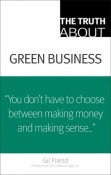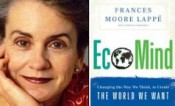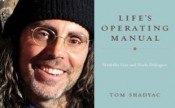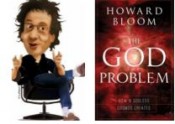DISRUPTIVE: BIO-INSPIRED ROBOTICS features three separate interviews with (1) RADHIKA NAGPAL, (2) ROBERT WOOD, and (3) CONOR WALSH
Written on October 7th, 2015
Welcome to the second episode of my new monthly podcast series produced with Harvard’s Wyss Institute for Biologically Inspired Engineering.
DISRUPTIVE: BIO-INSPIRED ROBOTICS features three separate interviews with (1) RADHIKA NAGPAL, (2) ROBERT WOOD, and (3) CONOR WALSH. From insects in your backyard, to creatures in the sea, to what you see in the mirror, engineers and scientists at Wyss are drawing inspiration to design a whole new class of smart robotic devices
In this one, ROBERT WOOD discusses new manufacturing techniques that are enabling popup and soft robots. His team’s ROBO-BEE is the first insect-sized winged robot to demonstrate controlled flight.
In part one, RADHIKA NAGPAL talks about her work Inspired by social insects and multicellular systems, including the TERMES robots for collective construction of 3D structures, and the KILOBOT thousand-robot swarm. She also speaks candidly about the challenges faced by women in the engineering and computer science fields.
In part three, CONOR WALSH discusses how a wearable robotic exosuit or soft robotic glove could assist people with mobility impairments, as well as how the goal to create real-world applications drives his research approach.
The mission of the Wyss Institute is to: Transform healthcare, industry, and the environment by emulating the way nature builds, with a focus on technology development and its translation into products and therapies that will have an impact on the world in which we live. Their work is disruptive not only in terms of science but also in how they stretch the usual boundaries of academia.
http://wyss.harvard.edu/
– See more at:
DISRUPTIVE: BIO-INSPIRED ROBOTICS Radhika Nagpal Interview
DISRUPTIVE: BIO-INSPIRED ROBOTICS Conor Walsh Interview
Robert Wood’s interview transcript
Q&A: Gil Friend, President & CEO of Natural Logic Inc
Written on November 5th, 2014 |
Q&A: Frances Moore Lappé, Author – ECOMIND: CHANGING THE WAY WE THINK, TO CREATE THE WORLD WE WANT
Written on October 2nd, 2014 |
Aired: 9/8/13
Originally Aired: 12/30/12
Where do you think the most important changes need to take place to turn things around in terms of big issues like the economy, the environment, and social justice?
Some might say climate change is the critical global issue so it must be clean energy. Others might say nothing will make as much difference for the world’s people as educating and empowering girls and women. Closer to home, a case can be made that public financing of political campaigns would have the most impact on all such issues by making it possible for the power of the United States to become a greater force for good.
All good answers, but this week’s guest gives another answer – and its one that I share. Frances Moore Lappe, who has herself been a force for good at least since the publication of the phenomenal best-seller Diet for a Small Planet in 1971, says that the greatest impact would follow from changing our minds.
In her 18th book, ECOMIND: CHANGING THE WAY WE THINK, TO CREATE THE WORLD WE WANT, Lappé argues that much of what is wrong with the world, from eroding soil to eroding democracies, results from ways of thinking that are out of sync with human nature and nature’s rhythms. Humans are doers, she says. But our capacity for doing is undermined by seven “thought traps” that leave us mired in fear, guilt, and despair — none of which are motivators to action.
Drawing on the latest research in climate studies, anthropology, and neuroscience, she weaves her analysis together with stories of real people the world over, who, having shifted some basic thought patterns, now shift the balance of power in our world. Chapter-by-chapter, Lappé takes us from “thought trap” to “thought leap,” and with each shift, challenges become opportunities.
Free Forum Q&A – TOM SHADYAC, director of documentary: I AM ; author of LIFE’S OPERATING MANUAL
Written on July 4th, 2014 |
Aired: 07/28/13
I sometimes say that in a past life I worked in the entertainment industry, comedy in particular. I co-wrote and co-produced novelty records THE HOMECOMING QUEEN’S GOT A GUN, I LIKE EM BIG AND STUPID and EARTH GIRLS ARE EASY all performed by Julie Brown. I directed comic music videos for some of these songs, and ended up co-writing and co-producing the film EARTH GIRLS ARE EASY. I’ve produced and hosted this show since 1996 and I consult and speak primarily to non-profits and foundations, working with them on communications, encouraging them to tell better stories.
My transition seems mild compared with that of this week’s guest, TOM SHADYAC, whose phenomenally successful writing/directing/producing career included the hits- ACE VENTURA: PET DETECTIVE, LIAR LIAR, THE NUTTY PROFESSOR, BRUCE ALMIGHTY, and PATCH ADAMS . His films grossed nearly $2 billion and earned him four People’s Choice awards and a ton of money.
His 2011 documentary, I AM recounts what happened after a cycling accident left him incapacitated for months. Though he ultimately recovered, he emerged a changed man. In the film, Shadyac meets with a variety of thinkers and doers including David Suzuki, Noam Chomsky, Howard Zinn, and Archbishop Desmond Tutu – asking what’s wrong with society and what can we do make things better?
Tom’s now written a book, LIFE’S OPERATING MANUAL, which asks whether life comes with a set of guidelines? If so, what are they? And finally, do we have the courage to pay attention and to change? Rather than spoil the plot by telling you his answers, join us for the conversation.
Q&A: Howard Bloom, Author – THE GOD PROBLEM: How a Godless Cosmos Creates
Written on January 22nd, 2013 |
Aired: 01/20/13
HOWARD BLOOM has been called “next in a lineage of seminal thinkers that includes Newton, Darwin, Einstein,[and] Freud,” by Britain’s Channel4 TV , and “the next Stephen Hawking” by Gear Magazine. His books include The Lucifer Principle: A Scientific Expedition Into the Forces of History; Global Brain: The Evolution of Mass Mind from the Big Bang to the 21st Century; The Genius of the Beast: A Radical Re-Vision of Capitalism; and his latest, THE GOD PROBLEM: How a Godless Cosmos Creates.
Heavy stuff, sure, but his biography is a lot quirkier than that list might suggest. From 1968 to 1988, Bloom made his mark in the music business, founding and running its biggest PR firm, working with Michael Jackson, Prince, Bob Marley, Bette Midler, Queen, Simon & Garfunkel, Peter Gabriel, Grandmaster Flash and the Furious Five, among many others. He helped launch Farm Aid and Amnesty International’s American presence, and put together the first public service radio campaign for solar power.
Bloom launched a successful kickstarter campaign to raise money for PR for THE GOD PROBLEM because changing a paradigm doesn’t just happen. A lot of people have given glowing blurbs to this book, but let me quote one by Barbara Ehrenreich, author of Nickel and Dimed, “If Howard Bloom is only 10 percent right, we’ll have to drastically revise our notions of the universe. There’s no mysticism in The God Problem—no God, no religion, no incommunicable spiritual insights – just the contagious joy of a great mind set loose on the biggest intellectual puzzles humans have ever faced. Whether you’re a scientist or a hyper-curious layperson, Bloom’s argument will rock your world.”
www.howardbloom.net

